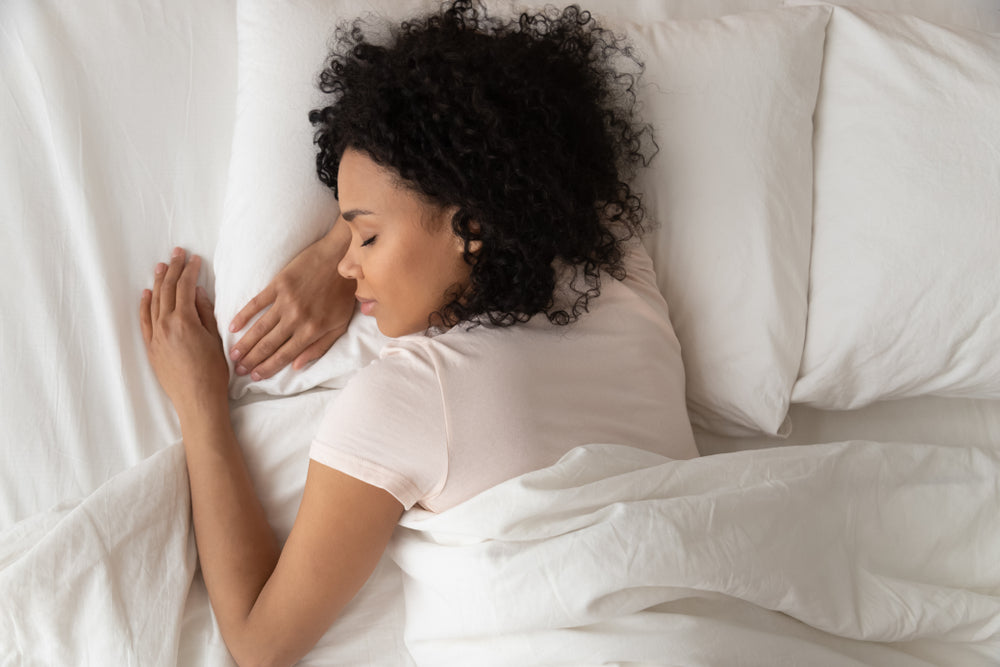
Morning Misery: Turning over the Truth about Sleep & Mental Health
Share
The relationship between our mind and our sleep is one that very rarely settles. The nurturing powers of sleep itself are underestimated all too often by a rapidly evolving world. And when we deprive ourselves of rest, it’s not just our physical energy that takes a blow, but our mental wellbeing too. In times when daily life already balances on the edge, the loss of sleep could prove truly detrimental.
So, in light of Suicide Awareness Month this year, we’d like to remember the paramount role the primordial need for sleep plays in how we feel, how we operate, and how we recover. A key link has been observed amongst cases of sleep disorders, such as insomnia and CFS, between the disruption of the sleep cycle and an increase in mental health illnesses. However, on the opposite side of the coin, preexisting illnesses, such as anxiety or depression, are often found to be the culprit behind sleep deprivation. It’s this spiralling cycle that we’ll be examining today.
The majority of adults are recommended to receive between 6 and 8 hours of sleep a night. During this time, our bodies go through alternating patterns of REM (rapid eye movement) and NREM (non-rapid eye movement); with each cycle typically lasting around 90 minutes. It is in this cycle that the body remarkably completes phases of muscle repair, memory restoration and hormone regulation.
However, when we prematurely cut this cycle, the phases of deep and light sleep are disturbed at irregular stages of completion. Physically, our energy levels and reaction times will be far depleted. Our arbitrary blood pressure and hormones lend themselves to tiredness, and the physical symptoms of anxiety. Mentally however, the effects are considerably more abhorrent. Expect to see spikes in irritability and anxiety amongst the shattered remains of cognitive function. Such a state will also cultivate low mood levels and erratic, irrational behaviour. Ultimately, the body will be unable to meet the demands of every day life.
An inability to sleep is also an all too common by-product of preexisting mental health conditions. Due to their wicked ability in manifesting themselves at various levels of sleep, it’s difficult to pinpoint any individual aspect; thus too making the symptoms even more difficult to combat. For example, anxiety may make it tricky to shut off the mind when it’s required, whilst depression often causes either cases of oversleeping or insomnia. Others however, such as the remembering of traumatic experiences, psychosis and PTSD, may exhibit themselves in the form of night terrors; it too being extremely capable of disrupting the sleep cycle.
Whatever shape your sleep demons inhabit, there are a range of remedies that can improve both the quality of your sleep and the state of your mental health; with our first point of call always being to impose regulation. When you regulate your sleeping pattern in the long term, your body will begin to fall into a pattern of rest, and you’ll be more naturally capable of falling asleep and waking up at consistent times. We’d also like to suggest that you avoid visual and physical stimulants an hour before bedtime. This includes the likes of caffeine, and any form of digital display. Not only will their presence stimulate the brain, but they’re also likely to induce anxiety or unhappy thoughts in an environment of mental isolation.
 It’s also highly important that you prepare to sleep in a dark, comfortable environment, as this will trigger the production of the sleep hormone Melatonin. But this could be difficult in an increasingly glowing world, especially if you live in a densely populated area. That’s why we created our 3D Contoured Blackout Sleep Mask, which is able to shut out every light glimmer of light during your sleep; whilst also being comfortable to wear. Fortunately, this mask is amongst many other SMUG sleeping helpers in our shop.
It’s also highly important that you prepare to sleep in a dark, comfortable environment, as this will trigger the production of the sleep hormone Melatonin. But this could be difficult in an increasingly glowing world, especially if you live in a densely populated area. That’s why we created our 3D Contoured Blackout Sleep Mask, which is able to shut out every light glimmer of light during your sleep; whilst also being comfortable to wear. Fortunately, this mask is amongst many other SMUG sleeping helpers in our shop.
Please sleep happy, and never forget to reach out for help if you ever feel like you need to. Samaritans - Call 116 123
